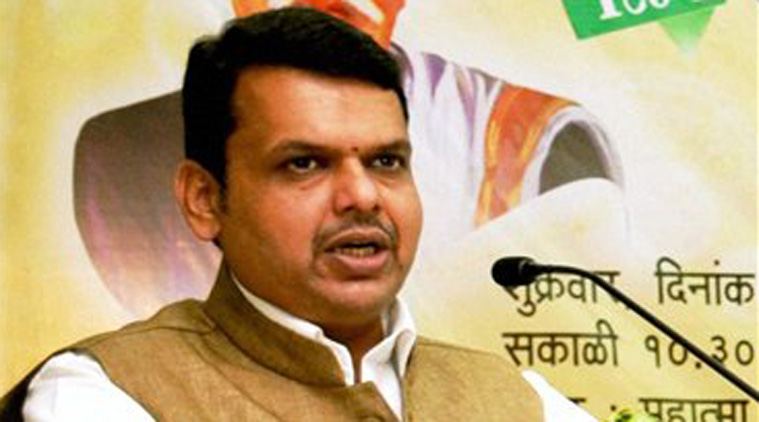Stay updated with the latest - Click here to follow us on Instagram
It is high time we all treat water as an economic commodity: Maharashtra CM Devendra Fadnavis
With his state facing one of the worst drought situations in years, Maharashtra Chief Minister Devendra Fadnavis talks about what’s being done to prevent farmer suicides, his government’s relief plan going forward and its financial implications.
 Chief Minister Devendra Fadnavis
Chief Minister Devendra Fadnavis
How is the government coping with the challenges posed by one of the worst droughts in the state?
In all drought-prone districts, there is an acute shortage of drinking water, which remains the biggest challenge for my government. Whether it is Marathwada or parts of west and north Maharashtra — there is a water crisis. Most dams have run dry… The rivers are dry. We have done water management, taking villages as units and supplying water from wells and ponds by using tankers and even trains.
With no sign of rain ahead of rabi season, what are your plans for the future?
If rains fail in the month of September or the first week of October, it means we will have a prolonged drought lasting for the next eight-nine months. I am aware of the grave situation my government faces, and the hardship to farmers. We are rolling out plans to address this. Three aspects will be critical — water, fodder and employment to farmers in the absence of agriculture activities. For the first time in the history of Maharashtra, we have given the nod to set up cattle camps in September. I have declared a policy of giving work to every hand under MNREGA. The food security act ensures rice and wheat to every family in all drought-prone districts.
[related-post]
But these measure do not seem adequate, considering the number of suicides by farmers.
I have already issued stern warnings and anybody found lacking in doing his or her duty in taking government schemes to drought-hit villages will face immediate suspension. There cannot be any compromise on relief to farmers. When we decided to enforce cattle camps, several officers warned us that it would lead to incurring of massive expenditure and we should wait till October. In the last six decades, cattle camps were opened in the month of February. We have also taken a decision to provide free schooling and college education…to children in drought-hit districts.
What are the financial implications?
Well, financially it is going to be extremely taxing. But then let us not forget the survival of human beings and animals cannot be a matter of bargain. Last year, the government spent Rs 7,000 crore on relief to farmers. Now, we are still in the middle of the crisis. It will surpass last year’s relief budget.
Do you regret enforcing the ban on beef as farmers are now finding it difficult to look after cattle?
Not at all. I also hail from a farmer’s family. I can state with absolute authority that no farmer ever likes to part with cattle. They would never support slaughter of cows or bullocks. Even in this crisis, they shed tears pleading that their animals should be saved. The other significant aspect relates to dairy, which is also a source of revenue for farmers to overcome drought. They are selling milk and earning when crops have failed.
Given the state’s debt burden, how do you propose to tackle recurring relief expenditure?
I believe the only way forward to combat drought and negate relief expenditure is through “jalyukta shivar” water conservation projects. Wherever water conservation works have been completed and there have been a couple of good rains, there is adequate water to cope even in the drought situation. Let me give you the example of Latur. In a remote village where farm ponds were created, it has held rain water, which is serving people even in the worst drought.
Will you go for a ban on sugarcane cultivation in drought-prone districts?
I am against mindless mining of water in drought-hit districts across Marathwada and parts of west and north Maharashtra. Even in the worst drought-prone districts of Osmanabad and Solapur, maximum sugar mills are being operated. We have to evolve policies in accordance with geographical conditions and available resources.
What are the lessons learnt from this year’s drought?
It is high time we all treat water as an economic commodity. Unless we do that, its misuse in the agriculture sector, industries or in households will not stop. Across sections, we have to create awareness and enforce strict policy decisions on water use. I appeal to all my brave farmers to together face the calamity and defeat the circumstances. I would like to reassure them that the government is fully backing them.







